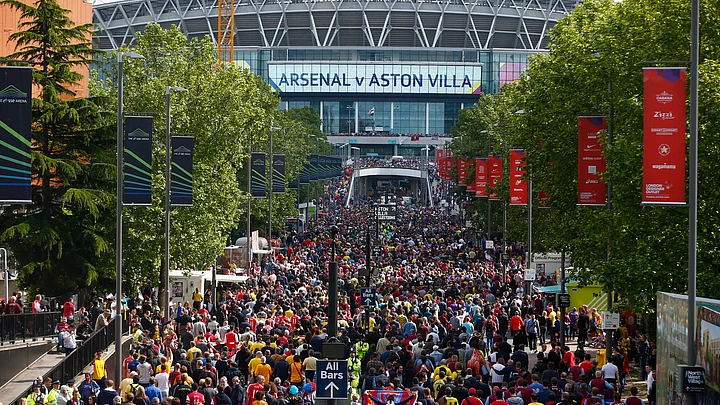This week, consultancy group Brand Finance published a report called the Football Top 50, according to which Manchester United have become the world’s first billion-dollar footballing brand. The report is based on the ‘brand power’ of football clubs around the world and their ability to generate revenue through their global fan base.
We have gotten so used to seeing these footballing super brands all around us on TV, in print and even in the local fake replica shops, that often one tends to forget that at the end of it all, they are simply football clubs consisting of players, coaches and staff. But what takes such a simple entity from the confines of the training ground and the locker room and convert it into something as valuable as a small country is its most important resource – the fans.
More Than Just a Club
It is well documented and universally established that for billions of fans around the globe, their local football team is part of their daily existence and a constant source of fluctuating emotion. For most, they may never have had a material relationship with the club – not professionally anyway, however to say that it is a personal one would be a massive understatement.
In most cases, the football club is part of the local fabric of the town and affiliation is cherished, preserved and passed on through generations, where the size of the stadium or that of the financial bottom line has no relevance. These are what we have come to know as ‘the faithful’ and it is their approval, which often acts as the rubber stamp on the most important of club decisions. It is this culture of fierce loyalty, which forms the history, and culture of the club.
Brand FC
Today however, we live in an era where the overwhelming majority of the clubs’ fan base is present in other continents, let alone other cities. The commercial explosion of the sport on a global level has made the performance of the club as a brand as important as that on the pitch. With dedicated marketing teams, there is a consistent attempt to not only expand the footprint across the world, but also create newer & bigger revenue streams wherever possible.
The Far Away Fan
For the long distance football fan, the loyalty is a creation of choice and not of a direct geographical connect. This does not prevent him from taking on board the values and ethos of the club, however it does perhaps drive an over-expression and often over-statement of one’s loyalty. It is therefore no surprise to see the commercial opportunities being tapped into by clubs of all sizes, ranging from merchandise, memorabilia and memberships to exhibition tours, football tourism and official club academies. Where season tickets were once a family treasure, today they are part of corporate gifting and where the summer used to be time for the players to hit the beach, today it is spent on tour in Japan.
Putting myself into the self-anointed fan category, I have experienced the journey of being a far away fan first hand for well over a decade. And while being lucky enough to watch Arsenal play at the Emirates as well as being present at Wembley last week as they lifted the FA Cup, I know that this is only the beginning of an ongoing journey of my association with the club. While for many years it was represented through posters on the wall, jerseys in the cupboard and syncing of my social calendar with the club’s, and while the experiences may be changing and the avenues expanding – the emotion stays the same - and grows!
(At The Quint, we question everything. Play an active role in shaping our journalism by becoming a member today.)
